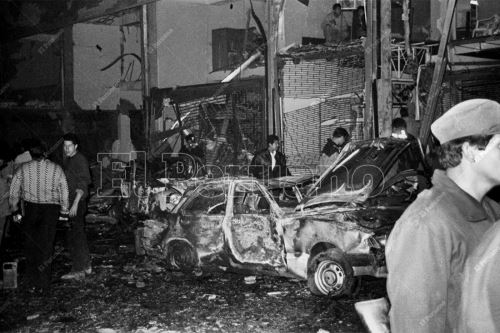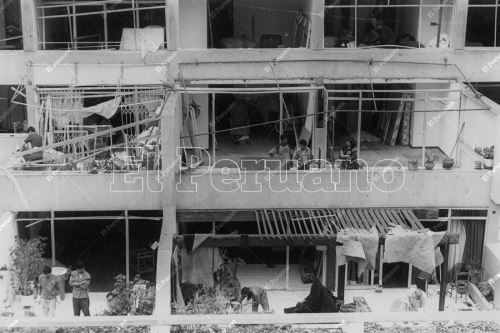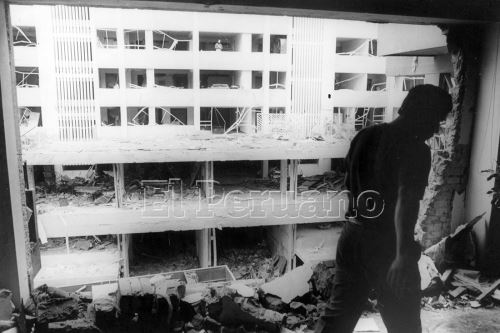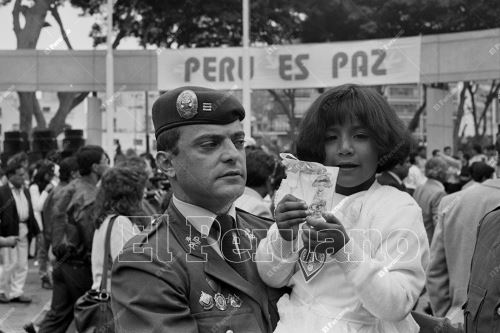On July 16, 1992, the Lima district of Miraflores was rocked by one of the most brutal terrorist attacks in Peru's recent history.
According to Peru's Truth and Reconciliation Commission (CVR), the attack was part of an urban offensive by the terrorist group Shining Path, which between January and July 1992 detonated 37 car bombs in Lima Metropolitan Area.
As is known, the result was devastating: 25 people dead, hundreds injured, and more than US$3 million in losses. It was a direct attack on innocent civilians.
The original target of the attack is believed to have been a Banco de Credito del Peru branch located on Larco Avenue.
However, due to the heavy police presence, the attackers redirected the vehicle to Tarata Street, where they left it unoccupied and detonated it, affecting around 380 families.

The State and justice system's response
Amid a country in turmoil, the government of Alberto Fujimori had carried out a coup d'état on April 5, 1992, dissolving Congress on the grounds of taking a tougher stance against subversion.
The Tarata attack marked a turning point in the fight against terrorism and strengthened the Peruvian State's pressure to capture Shining Path's ringleaders.

The Tarata attack trial took place many years later, when Abimael Guzman, Elena Iparraguirre, and Shining Path's key members were tried for their responsibility in the massacre.
Judge Jhonny Contreras Cuzcano, who was part of the court that sentenced Abimael Guzman for the Tarata Street attack, firmly recalls how justice was served for one of the most heinous terrorist crimes in Peru.

Thirty-three years later, Judge Jhonny Contreras remembers the judicial proceedings that resulted in a life sentence for the Shining Path ringleaders.
"When Guzman acted arrogantly during the hearings, he was expelled. The trial continued in his absence, and later they returned. The law prevailed," the magistrate said.
Contreras recalls the difficulty of leading a judicial process of such magnitude, both in legal and personal terms.
"It was not easy at all. We had constant security and knew that behind (each one of) us there was a family worrying about us, but we had made a vow: to conduct the trial with the law in hand" he stated.
The ruling issued by Judges Rene Martinez, Edhin Campos, and Jhonny Contreras was upheld in 2022 by the Supreme Court, which confirmed that the attack had been approved by the Shining Path ringleaders.
"It was a recognition of our work, a clear message: the law must always prevail," Contreras said.
For him, the proceedings were also personal. His father, Hermogenes Contreras, was a policeman who had fought terrorism in Lima region's highlands.
That legacy shaped his commitment to justice: "We notified the defendants and told them: whether you leave or not, the trial will go on. They never attempted to leave again."
Never again
Thirty-three years after the attack, the memory of Tarata remains alive.
Therefore, the Tarata attack stands as a symbol of tragedy and evokes the memory of the difficult situation the country faced in 1992.
